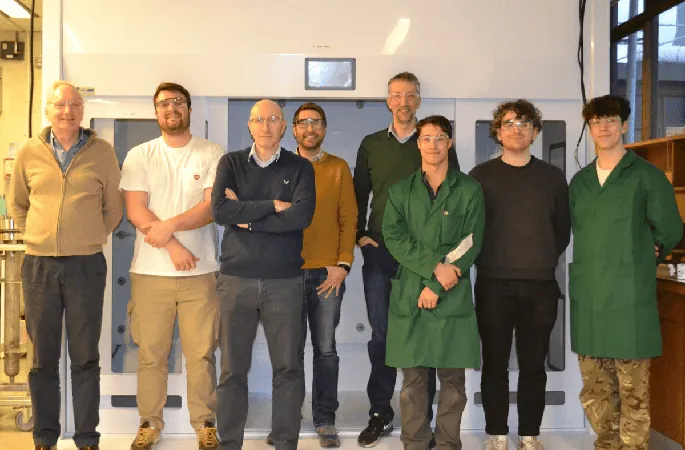
Breakthrough in Hydrogen Production: Clyde Hydrogen Achieves Continuous Output with Innovative Electrolysis System
2025-03-24
Author: Yu
Introduction
In a significant achievement for renewable energy technology, Scottish startup Clyde Hydrogen has successfully produced hydrogen continuously for the first time using its innovative prototype decoupled electrolysis system. This groundbreaking development marks a pivotal moment in the pursuit of sustainable hydrogen production, a critical component in the transition to cleaner energy sources.
Innovative Electrolysis Technology
Clyde Hydrogen's cutting-edge technology employs a decoupled electrolysis method, allowing for the efficient splitting of water in two distinct stages: an electrochemical reduction followed by a catalytic generation process. This approach enables the firm to flexibly produce high-pressure hydrogen, even during times when renewable power sources might be unavailable, effectively solving a major challenge in the energy sector.
Operational Success
Operating from the University of Glasgow’s School of Chemistry, Clyde has achieved impressive results with its beta version, managing to continuously produce hydrogen at pressures exceeding 100 bar. However, it’s important to note that the system is currently under manual control, with plans to refine and automate the process moving forward.
Future Plans
Looking ahead, Clyde Hydrogen anticipates the rollout of a full pilot system by the end of this year, with an ambitious goal of developing a commercial demonstration system scheduled for 2027. This timeline underlines the company’s commitment to advancing their technology and highlighting the potential for widespread adoption.
Partnerships and Funding
As part of its expansion strategy, Clyde Hydrogen has entered into a Memorandum of Understanding with PlusZero, aiming to showcase its electrolyzer technology beyond the confines of the laboratory environment. This partnership signifies a crucial step in demonstrating the practical applications of its innovative technology in real-world scenarios.
To fund its growth and development, Clyde Hydrogen has initiated a new funding round, targeting an impressive £5 million investment aimed at creating a production-ready system by 2026. The startup has already attracted support from various sources, including pre-seed funding from Zinc, grants from the Scottish Government's Hydrogen Innovation Scheme (HIS), and backing from the Net Zero Technology Centre (NZTC).
CEO's Outlook
James Peck, the CEO of Clyde Hydrogen, expressed optimism about this milestone: "We are excited about the progress we've made, and this gives us the confidence to begin building the full prototype in preparation for our commercial pilot project. Our technology has the potential to revolutionize hydrogen production and contribute significantly to a sustainable energy future."
Conclusion
With this significant step forward, Clyde Hydrogen is positioning itself as a leader in the hydrogen sector, as the world increasingly shifts towards sustainable and innovative energy solutions. Will this innovation pave the way for a hydrogen-powered future? Only time will tell!


 Brasil (PT)
Brasil (PT)
 Canada (EN)
Canada (EN)
 Chile (ES)
Chile (ES)
 Česko (CS)
Česko (CS)
 대한민국 (KO)
대한민국 (KO)
 España (ES)
España (ES)
 France (FR)
France (FR)
 Hong Kong (EN)
Hong Kong (EN)
 Italia (IT)
Italia (IT)
 日本 (JA)
日本 (JA)
 Magyarország (HU)
Magyarország (HU)
 Norge (NO)
Norge (NO)
 Polska (PL)
Polska (PL)
 Schweiz (DE)
Schweiz (DE)
 Singapore (EN)
Singapore (EN)
 Sverige (SV)
Sverige (SV)
 Suomi (FI)
Suomi (FI)
 Türkiye (TR)
Türkiye (TR)
 الإمارات العربية المتحدة (AR)
الإمارات العربية المتحدة (AR)